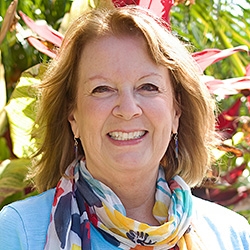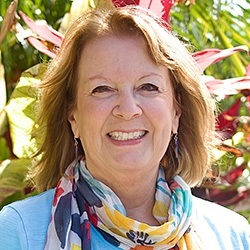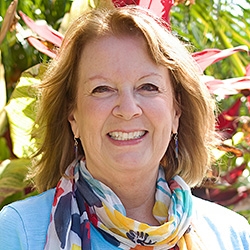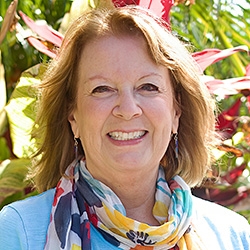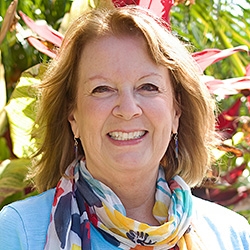

Search Results: needs
-
The more we practice NVC by “rote” --going through OFNR (“Observations, Feelings, Needs, Requests”) on automatic-- the more likely our NVC practice would lead to disconnection. The purpose of our NVC practice is to use this NVC "map" (OFNR) to support us in integrating the consciousness of the NVC (eg. operating with the intention to connect, collaborate, etc). Once we let the map drop away, we can engage with the people in our lives in a more heartfelt way. This article explains more about how we can use the map to remind us of our heartfelt consciousness...
-
Learn to navigate conflict without reactivating old pain, bringing peace to yourself and others.
-
Turn feedback into a path for learning and growth by understanding what makes it challenging.
-
Trainer Tip: What do you value the most? Take a look at your actions and notice the values that your actions demonstrate (not what you want them to show, but what they do show), and see if they are in alignment. Where there is a gap take steps to create actions that are in alignment with your values.
-
Transform inner messages rooted in childhood trauma, healing through compassionate connection.
-
Understand the brain's role in self-talk and learn to meet your inner critic with empathy.
-
Trainer tip: When you want to thank someone expressing what that person did, how you felt about and what needs were met for you, can provide the other person with more information. It can also help her more fully understand how she contributed to you, and deepen your connection with her.
-
Amidst racial violence, there are things that NVC can offer. And there are places where NVC culture needs to be more vigilant. Here are examples of where, amidst incredible loss and pain, "allies" and communities commonly (and often unknowingly) create false equivalences, minimization and re-injure those who've been historically marginalized -- even when they offer empathy, or aim to stay "safe". Read on to cultivate greater understanding and ways to respond differently.
-
Open your heart across differences with humility and courage as you explore new perspectives.
-
Trainer Tip: When we sympathize, we relate an aspect of someone’s story to ourselves. When we empathize, we reflect the feelings and needs of the other. Empathy helps people connect more deeply to their own and another’s pain, and helps resolve issues with clarity and ease. Notice when you're giving someone sympathy rather than empathy.
-
Trainer Tip: When we "protect" ourselves by not asking for what we want, we block ourselves from getting our needs met. From here, disappointment and resentment can build -- especially if this is a pattern. Instead, notice when you're tempted to do this, and be honest and upfront about what you want to improve the quality of your relationships.
-
Trainer Tip: Even if we don't agree, acknowledging others' realities can help demonstrate that we're including their feelings and needs in the conversation. Creating space for your reality and theirs can also bring a sense of connection, understanding, inclusion, abundance and fullness in life. Try it today. Read on for an example.
-
Here are 14 more key differentiations that are not, at time of publishing this, on the CNVC key differentiations list. They can be used to support people who are on the path of learning and integrating NVC in making sense of their own understanding of their journey and where they are within it. And it can be used to support people who share NVC with others in offering brief information in support of understanding and learning.
-
The American mythos of Independence Day is that liberty, equality, and opportunity are for all. Yet since the country's formation, these needs have been for some at the expense of others. It started with the brutal robbery and genocide of Native Americans and slavery of Africans. And this theme continued for generations in various forms, including how we related to other peoples, countries, and the ecosphere. To achieve true justice, liberty, and opportunity for all we may need to overcome the ego's sense of separation. Compassionate noncooperation may also be key.
-
Uncover self-sabotage and release unconscious contracts through empathy and neuroscience.
-
In times of conflict, it’s easy to lose touch with ourselves and our needs. In this heartfelt session, Jesse Wiens Chu shares three practical centering practices—rooted in the principles of Nonviolent Communication (NVC)—to help you find your way back to self-connection, empathy, and choice.
-
Oren Jay Sofer explains how we can stay grounded and maintain choice during overwhelming or emotionally charged conversations. He highlights the importance of presence—feeling our feet, noticing our breath, and expanding our awareness—to counter the fight-or-flight response and self-regulate. Oren also teaches a simple three-part structure for pausing a conversation without damaging the relationship: affirm the connection, state your limit, and offer a next step. By practicing and even memorizing a short version of this framework, we can exit challenging moments with clarity, care, and self-respect.
-
Ask the Trainer: Understanding your needs behind using protective force with children.
-
Ask the Trainer: How do I respond to people who believe that consequences are necessary to change behavior?
-
Learn how jackal and giraffe mascots teach NVC dialogue, with many jackal examples.

Quick Links
Subscription Preferences
Stay In Touch!
Looking for ways to keep up with NVC Academy news, get special offers, free resources, or words of inspiration? Here are five ways to stay engaged:




